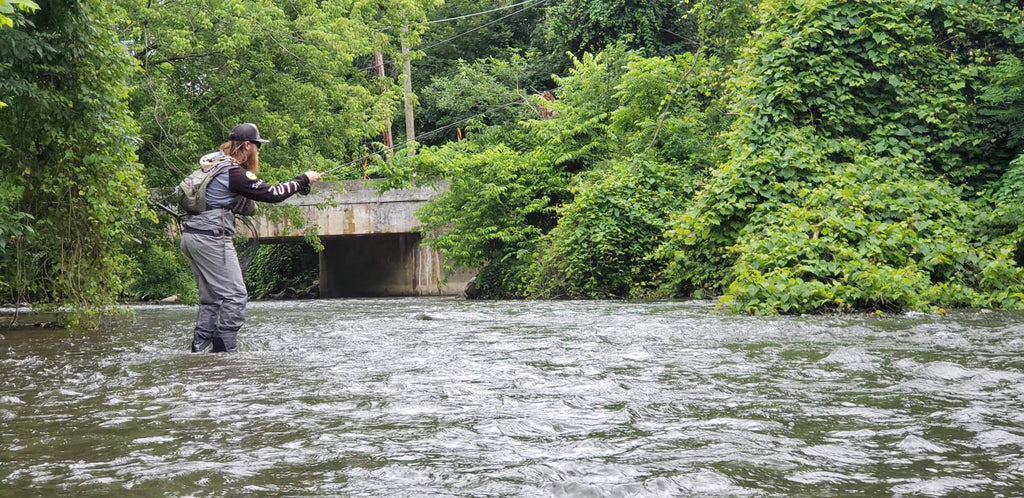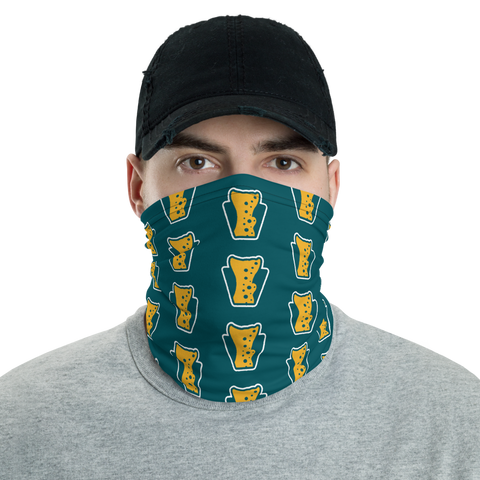
Light Euro-Nymphing - Part 1: Don't fish so heavy
To preface, some people just fish heavy flies, and/or added weight to their rig. If you do that and find success, in any way you'd like to measure, thats great (and one of the best things about fishing), and this info may not be suitable for your style. However, nymphing takes shape differently for every angler, but this article is based on a common theme across competitive fly fishing that has brought a lot of success to many anglers.
For several years, I've been fishing the lightest nymphs possible for any given situation, and finding myself having more efficient, effective drifts and a lot more success. Before this point I would fish large, heavy flies with basically no confidence to fish anything small or light unless I had a "good anchor fly" prevalent.
I could notice my heavy style coming to a point of contention when I was tasked with any water type that had previously made me uncomfortable, skinny riffles, small pockets, and anywhere I had trouble getting an effective drift because of my overweight fly arsenal. This realization came full-circle after I performed extremely poorly during a competition in water that I know and love, because the water was a little lower than I normally fished. After my lack-luster session, I watched Ben Trew pick apart water that I would not normally fish and put a laughable amount of fish on the board for himself. I knew at that point that something in my game had to change for me to succeed. A huge part of my success (in my head) was admitting to myself that there is another, better method than what I am currently doing, and pivoting on the fly.
At this time, my teammate Chase Kreider (Youth Team USA World Team Member, 2019 Team Silver World Champion Recipient) was already implementing something like this into his skillset. We worked together on fishing lighter over the next season, and while he always seemed to be ahead of me, we both shared a lot of success because of it. While I can't speak to his success or take credit for anything found, I'll share my journey and how I found success.
I see a lot of newer euro-nymph fishers hold on to the crutch of heavy flies. And they're in the same boat as we've all been in before. Most articles and folks who nymph will suggest to be heavier than not, so it's a very common path to walk for everyone.
Okay, Nick, let's get to the point.
I have found that, contrary to extremely popular belief, you do not need to be "heavy" to succeed in mostly all nymphing situations.
Let's define "heavy" in the context we're going to use today: "Given the turbidity, depth, and outside influences (wind, drift angle, intended drift speed), your flies are improperly drifting because of their weight or your rig weight"
The weight of your flies will effect your drift. Mostly negatively, sometimes positively. We're going to focus on the negative before positive... because that's the point of the article.
That said, knowing how to identify this is a little tricky.
How to quickly identify that you're fishing too heavy:
- You snag up a lot on the bottom. Once per every 5 drifts, or maybe even once per drift.
- You're feeling the bottom a lot and correcting your drift mid-drift.
- You're feeling the bottom a lot and pulling your drift to re-cast.
- Your drifts are stopping and starting (bouncing) a lot.
- You don't have much success on your tag fly if you're fishing a tandem nymph rig.
- You lose a lot of flies on the bottom.
This leads me to the next point, which is pretty much a culmination of those indicators: the common misconception is that nymphs need to be dredged or stuck to the bottom. This has been brought to light in a lot of articles lately, and the truth is, you don't need to dredge at all. Fish feed all over the column, all year. A mayfly nymph, caddis, or other foods are not weighted... they flow freely through the river when they're dislodged or especially when emerging.
- Fishing too heavy will most likely shorten your drifts, and intervening or adjusting (being tighter so you can achieve longer drifts) will further hinder your drift.
- A condition where this may not be the case is if you're fishing more turbulent water further away from you.
- Heavier, bulkier flies sometimes cause more resistance, which could slow your drift (and harshly effect the drift of your other fly on a tandem rig)
- Slowing your drift is a good thing to do in the colder months, or when fish are more sluggish. There are other ways to slow it down, i'll get to those later.
What about Shot?
If you want to use split shot, that's cool... but I wouldn't suggest it to anyone if they're trying to improve their nymph game. It negatively effects your drift, plain and simple. I believe that if you have to use split shot, you can correct it by adjusting your drift, cast, how your flies enter the water, tippet diameter, leader, and how your flies are built. I will get to those details in the next segment.
It's also illegal to use during competition... so there's that.
To wrap up, fly fishing in its entirety can be a lot about involuntary (or voluntary) confidence, and most of the time you may not know you're too heavy because you find success in most of your outings... but taking a step back to reevaluate and fish properly weighted flies for each scenario will drastically improve your catch rate.
In the next article, we'll start diving into ways to effectively fish lighter flies, starting with the Rod.
- Nick Meloy
- Part 1: Don't Fish so Heavy
- Part 2: The rod
- Part 3: The Leader
- Part 4: The Tippet
- Part 5: Casting & Landing Angles
- Part 6: The Flies
(Photo above by Mike Yamrick aka "Yam-Sauce")



Jack Walsh
I’m in the process of doing all this cool stuff right now. The 2wt arrives tomorrow. I have most of the materials to build the micro leaders and I’m getting some midge jaws for the vice. It should be a wild ride!!!
Josh Miller
I love the guys at Trutta! Awesome Stuff! #troutyeah!
Mike Yamrick
Nice picture. I wonder who took that one ;)